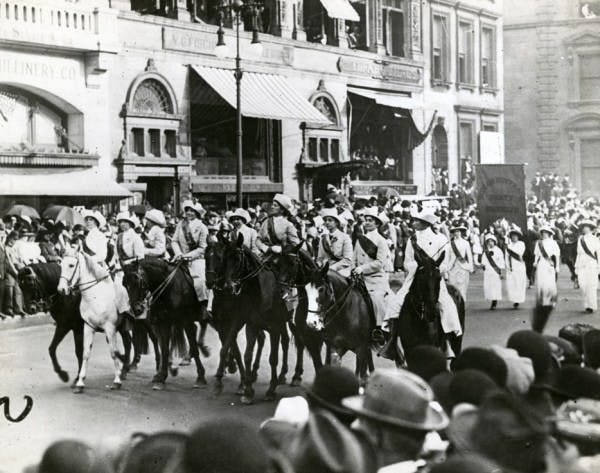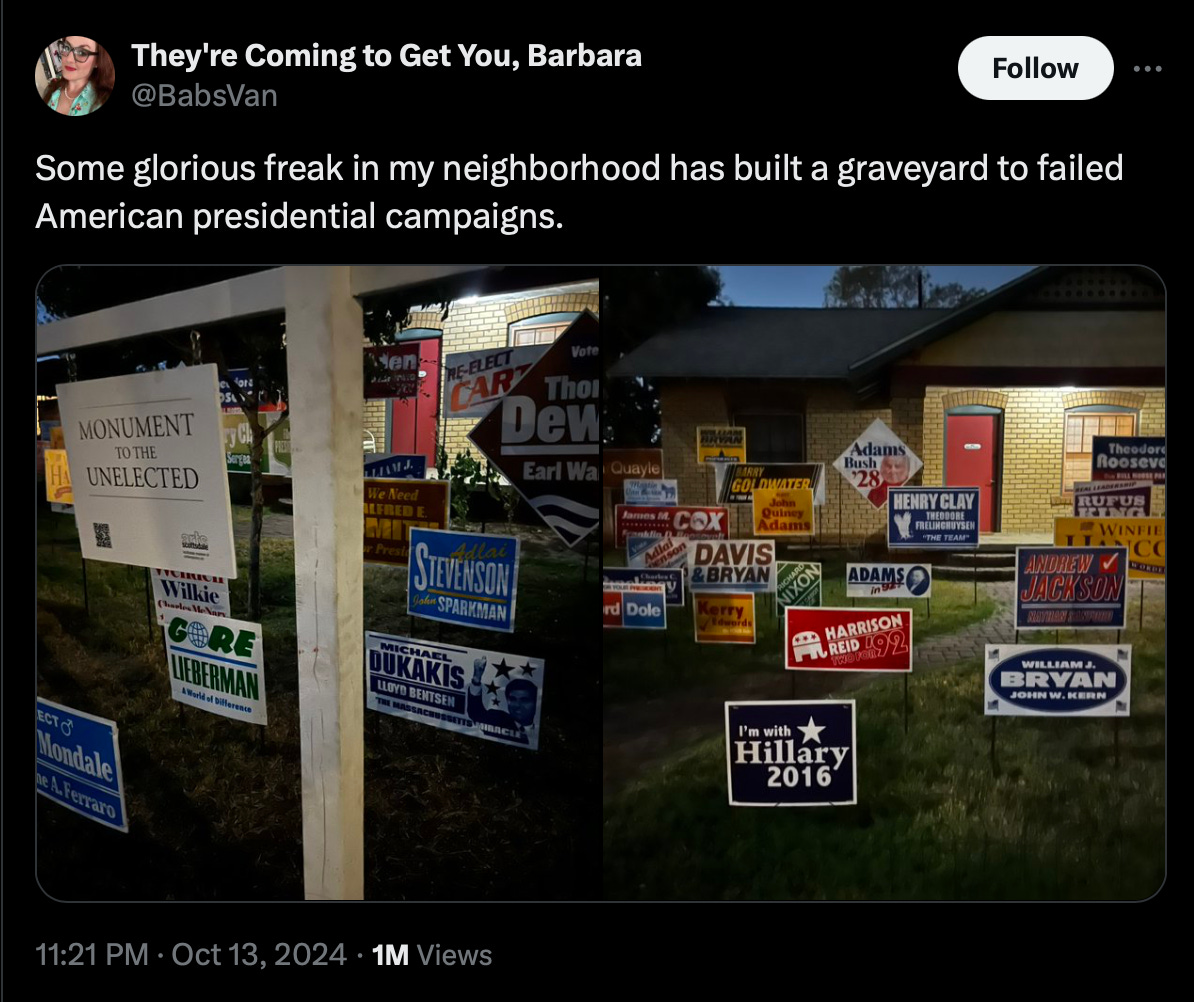Welcome back to the This Day In Esoteric Political History newsletter. Each week, a member of our team (or a friend of the show) gathers together bits of America’s past and attempts to find a throughline that might add a little understanding to our current moment.
If you’re enjoying this newsletter, please forward it to a friend or post on social! We’d really appreciate it! If not now, when?
Here’s what happened over the week ahead in American political history…
October 17
1978: President Jimmy Carter restores US citizenship to Confederate leader Jefferson Davis
1979: Carter creates the Department of Education
October 18
1775: African-American poet Phillis Wheatley is freed from slavery
1867: The US formally takes possession of Alaska from Russia
1972: Congress passes the Clean Water Act over President Richard Nixon’s veto
October 19
1974: Kanawha County, West Virginia is embroiled in an increasingly violent battle over a slate of new textbooks being added to the local school curriculum. Over the course of a few weeks, there would be shootings, bombings, conspiracies to attack school buses full of children, and more
1987: Real estate mogul Donald Trump is invited to New Hampshire to give a speech to a local GOP group. He bragged about his accomplishments, drew a big crowd and — of course — teased a possible presidential run
1993: The House of Representatives votes to halt construction of the world’s largest superconducting super collider, ceding superiority in the space to European scientists. Critics contended that costs for the project had escalated out of control
October 20
1803: The Senate ratifies the Louisiana Purchase, 24-7
1944: The Cleveland East Ohio Gas Explosion kills 130 people and destroys a significant area of Cleveland, Ohio
1947: The House Un-American Activities Committee begins hearings into alleged Communist influences in Hollywood
October 21
1835: A White mob seizes abolitionist William Lloyd Garrison and drags him through the streets of Boston
1917: America sees its first military action of WWI in France
1967: 50,000 protestors participate in a March on the Pentagon in the first national protest against the Vietnam War
1978 : The Falls City Brewing Company ceased production of Billy Beer, a cheap brew endorsed by the younger brother of President Jimmy Carter
2003: Florida Governor Jeb Bush orders a feeding tube be reinserted for Terry Schiavo
October 22
1927: Americans are flocking to the theaters to watch “The Jazz Singer,” the first major “talkie” film
1928: Then-Presidential nominee Herbert Hoover discusses Americans’ “rugged individualism” in a speech at New York's Madison Square Garden
1962: President John Kennedy announces a blockade of Cuba following the installation of Soviet missile bases. He referred to the blockade as a "quarantine," not as a blockade, so the US could avoid the formal implications of a state of war
1968: President Lyndon B. Johnson signs the Gun Control Act of 1968 into law, the first major gun control measure in the US in 30 years
October 23
1915: 25,000 people march in New York for women’s suffrage
1981: US debt hits $1 trillion. (It’s currently more than $35 trillion)
In which we take the above collection of events and find themes, throughlines, rabbit holes and more. This week it’s Jacob Feldman’s turn at the typewriter.
I didn’t know it was possible to dread the present, actually. Not until this week.
The 2024 Election is here. Early voting is open in a bunch of states. The next congresspeople and governors and judges and magistrates—and yes, the next POTUS—are being chosen as I write this. Maybe even as you’re reading it. And that’s a weird feeling.
Normally dread requires some form of anticipation over what might happen in the future. But now, there’s enough uncertainty around what’s currently transpiring just outside of our limited scopes of perception to inspire the same feeling—at least for me.
Putting together the list of moments above, two examples of collective action jumped out. New York’s 1915 suffrage parade, as it was called at the time, was the city’s largest to date. It came more than six decades into the fight for women’s right to vote. It would be another five years before the cause succeeded (and only then for some women).
Just over 50 years later, twice as many people gathered in DC for the largest antiwar rally ever staged by that point. (This is where the famous Flower Power photo came from.) It would be another eight years before peace—of a sort—won out.
In each case … eventually … a continued, shared voice couldn’t be ignored. A vision was realized. A battle won.
And now here we are, just more than another half-century later. Can you imagine sustained solidarity lasting 8 months, much less 8 years, to say nothing of 80?
It’s equally hard for me to imagine singular events defining a movement now like they once did.
What is going on in the final days of the 2024 campaign? Countless rallies and interviews—and yet, maybe nothing of significance in the grand scheme of things, nothing that we’ll remember? Everyone will remember this election differently based on the interview clips they were exposed to and the memes they were shown. The stories they read. The only shared reality is the acceptance that we now live in a world of a million believed truths.
There is reason for optimism, if you embrace the uncertainty. We can’t know both our exact position and our exact direction. Maybe, in this very moment, we are actively coming together again. Coalescing around new movements that create bonds and precipitate change. Or maybe not. Maybe we’re headed in the other direction. And hence the dread.
A little more esoterica
Extremely cute podcast alert! What Now with Trevor Noah, which Jody helps produce, recently convened a panel of kids for a conversation about childhood, adulthood, and more. Jody’s daughter Nola took part, as did a bunch of other very charming little ones.
The early frontrunner for TDiEPH’s Most Esoteric Political Halloween Decoration is…
Apple | Spotify | PocketCasts | YouTube | Twitter/X | Threads | Instagram







